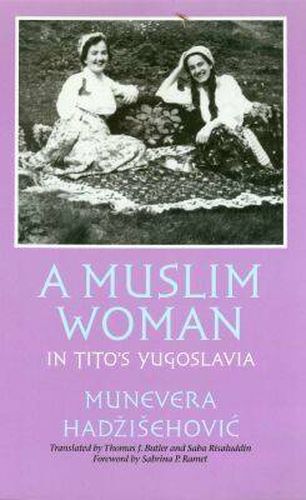Readings Newsletter
Become a Readings Member to make your shopping experience even easier.
Sign in or sign up for free!
You’re not far away from qualifying for FREE standard shipping within Australia
You’ve qualified for FREE standard shipping within Australia
The cart is loading…






Born in a small river town in the largely Muslim province of Sandzak, Munevera Hadzisehovic grew up in an area sandwiched between the Orthodox Christian regions of Montenegro and Serbia, cut off from other Muslims in Bosnia and Herzegovina. Her story takes her from the rural culture of the early 1930s through the massacres of World War II and the repression of the early communist regime to the dissolution of Yugoslavia in the early 1990s. It sheds light on the history of Yugoslavia from the interwar kingdom to the break-up of the socialist state. Hadzisehovic paints a picture not only of her own life, but also of the lives of other Muslims, especially women, in an era and an area of great change. Readers are given a loving yet accurate portrait of Muslim customs pertaining to the household, gardens, food and dating - in short, of everyday life. She writes from the inside out, starting with her emotions and experiences, then moving outward to the facts that concern those interested in this region: the role of the Ustashe, Chetniks and Germans in World War II; the attitude of Serb-dominated Yugoslavia toward Muslims; and the tragic state of ethnic relations that led to war again in the 1990s. Some of Hadzisehovic’s experiences and many of her views may be controversial. She speaks of Muslim women’s reluctance to give up the veil, the disapproval of mixed marriages and the problems between Serb and Croat nationals. Her benign view of Italian occupation is in stark contrast to her depiction of bloodthirsty Chetnik irregulars. Her analysis of Belgrade’s Muslims suggests that class differences were just as important as religious affiliation. In this personal story, Hadzisehovic mourns the loss of two worlds - the orderly Muslim world of her childhood and the secular, multi-ethnic world of communist Yugoslavia.
$9.00 standard shipping within Australia
FREE standard shipping within Australia for orders over $100.00
Express & International shipping calculated at checkout
Born in a small river town in the largely Muslim province of Sandzak, Munevera Hadzisehovic grew up in an area sandwiched between the Orthodox Christian regions of Montenegro and Serbia, cut off from other Muslims in Bosnia and Herzegovina. Her story takes her from the rural culture of the early 1930s through the massacres of World War II and the repression of the early communist regime to the dissolution of Yugoslavia in the early 1990s. It sheds light on the history of Yugoslavia from the interwar kingdom to the break-up of the socialist state. Hadzisehovic paints a picture not only of her own life, but also of the lives of other Muslims, especially women, in an era and an area of great change. Readers are given a loving yet accurate portrait of Muslim customs pertaining to the household, gardens, food and dating - in short, of everyday life. She writes from the inside out, starting with her emotions and experiences, then moving outward to the facts that concern those interested in this region: the role of the Ustashe, Chetniks and Germans in World War II; the attitude of Serb-dominated Yugoslavia toward Muslims; and the tragic state of ethnic relations that led to war again in the 1990s. Some of Hadzisehovic’s experiences and many of her views may be controversial. She speaks of Muslim women’s reluctance to give up the veil, the disapproval of mixed marriages and the problems between Serb and Croat nationals. Her benign view of Italian occupation is in stark contrast to her depiction of bloodthirsty Chetnik irregulars. Her analysis of Belgrade’s Muslims suggests that class differences were just as important as religious affiliation. In this personal story, Hadzisehovic mourns the loss of two worlds - the orderly Muslim world of her childhood and the secular, multi-ethnic world of communist Yugoslavia.